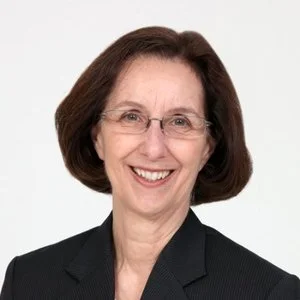Dr. Carol Sabourin
Senior Advisor/Tunnell Contractor at Tunnell Government Services Inc. / BARDA
“I am the principal investigator on several contracts that we have from non clinical efficacy testing for vaccines and therapeutics. My day is primarily involved in planning studies, developing strategies, responding to request for proposals, and monitoring studies for vaccines for other viruses.”
Read Dr. Carol’s full profile below
What do you do every day?
I am the principal investigator on several contracts that we have from non clinical efficacy testing for vaccines and therapeutics. My day is primarily involved in planning studies, developing strategies, responding to request for proposals, and monitoring studies for vaccines for other viruses.
Why do you love it?
Everyday is different. I love that aspect of my job, I love the science, and I'm particularly interested in developing these vaccines, the long range benefits to the population are extensive, they have crossed-over to other virus, so there is a wide range of different aspects of development these studies require.
What were your moments of fear and challenges in your career?
It was earlier in my career when I had finished a Masters degree. I was looking at what steps to take with my career whether to go an MD or MBA. It was a turning point in my path I wanted to take to stay on the scientific side or be more programmatic. I chose to go out and get a PhD to coextend my career across different fields including cancer research, highly toxic fields, toxicology and it includes some of the viral pathogens and developing vaccines for these.
What are some of the latest innovations in science that you are most excited about?
I am very exciting about the potential of designing antivirals for some of the diseases that are difficult to treat, for example the Middle Eastern respiratory syndrome vaccines development that is ongoing, and there has been some recent discoveries for infectious diseases but also new platforms for developing specific vaccines.
Where did you grow up?
I grew up in a rural area in Illinois. I went to a small grade school, a small high school, went on to college at Illinois Wesleyan University in middle of Illinois and launched my career from there. I grew up near Kankakee in a small town called Clifton. I like the Midwest, thats where I feel at home.
Who was your favorite teacher and why?
He was my chemistry teacher. When I first went to Illinois Wesleyan University in Bloomington, his name was Dr. Windell Hecks, he was probably the most influential teacher in my career because Windell his advice was very sound "never give up; you have this hurdle to overcome; and you can take it to the next level." He was very influential early on in my career as far and encouraging me to keep going and telling me that I can do it.
What is your unique talent?
I tend to be focused and I tend to be broad and that works in your favor when you're working for companies that have many different areas of research. I choose not to be focused on only one particular area and the company I work for you have to be flexible. You have to be an expert for your clients in many different areas, and you sometimes never know what you'll be doing in the next six months. Flexibility is really important. Never say never, I won't do that because within time you become that expert in a lot of different fields and apply what you learned in one field to the next field.
Who inspires you?
There is a woman who has inspired me the most in my career. One is Gertrude "Trudy" Elliot- she is a Nobel Prize winner and at one point she was my manager's manager very early in my career. As a woman in science--a male dominated field. This was a number of years ago and Trudy has since died. She was an example of someone who was a true leader and not just with leading people but also within the field. I aspired to be someone like that. In her field of science she was very well known and got to that level with a bachelors degree and was awarded a PhD by several universities. She always took the time to talk to people.
What’s next for you?
I want to see some of the vaccines I have licensed in the future, we know its a long process, but there's hope.

